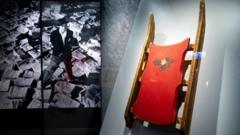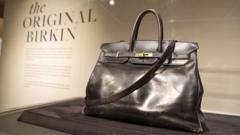A Paris court has provisionally blocked the auction of La Pascaline, one of the world's first calculating machines.
The mechanical calculator, invented by French mathematician Blaise Pascal in 1642, was set to be auctioned by Christie's, but the court's decision came after a successful appeal from scientists seeking to classify the device as a protected national treasure.
Experts believe the machine could sell for between €2 to 3 million, making it the “most important scientific instrument ever offered at auction” according to Christie's. The legal challenge emphasized the calculator's historical significance, with claims it represents the first effort to replace human thought with a machine.
Currently, only nine known versions of La Pascaline exist, underscoring its rarity and importance.
The court ruled after serious doubts arose regarding the legality of export licenses previously granted, halting plans until a final decision is made. Meanwhile, heritage advocates celebrated the decision, pointing to the machine's potential for national heritage protection under French law.
La Pascaline’s exhibition at Christie's earlier in the year showcased its role in the evolution of calculating technology, reflecting a pivotal moment in its history.
















